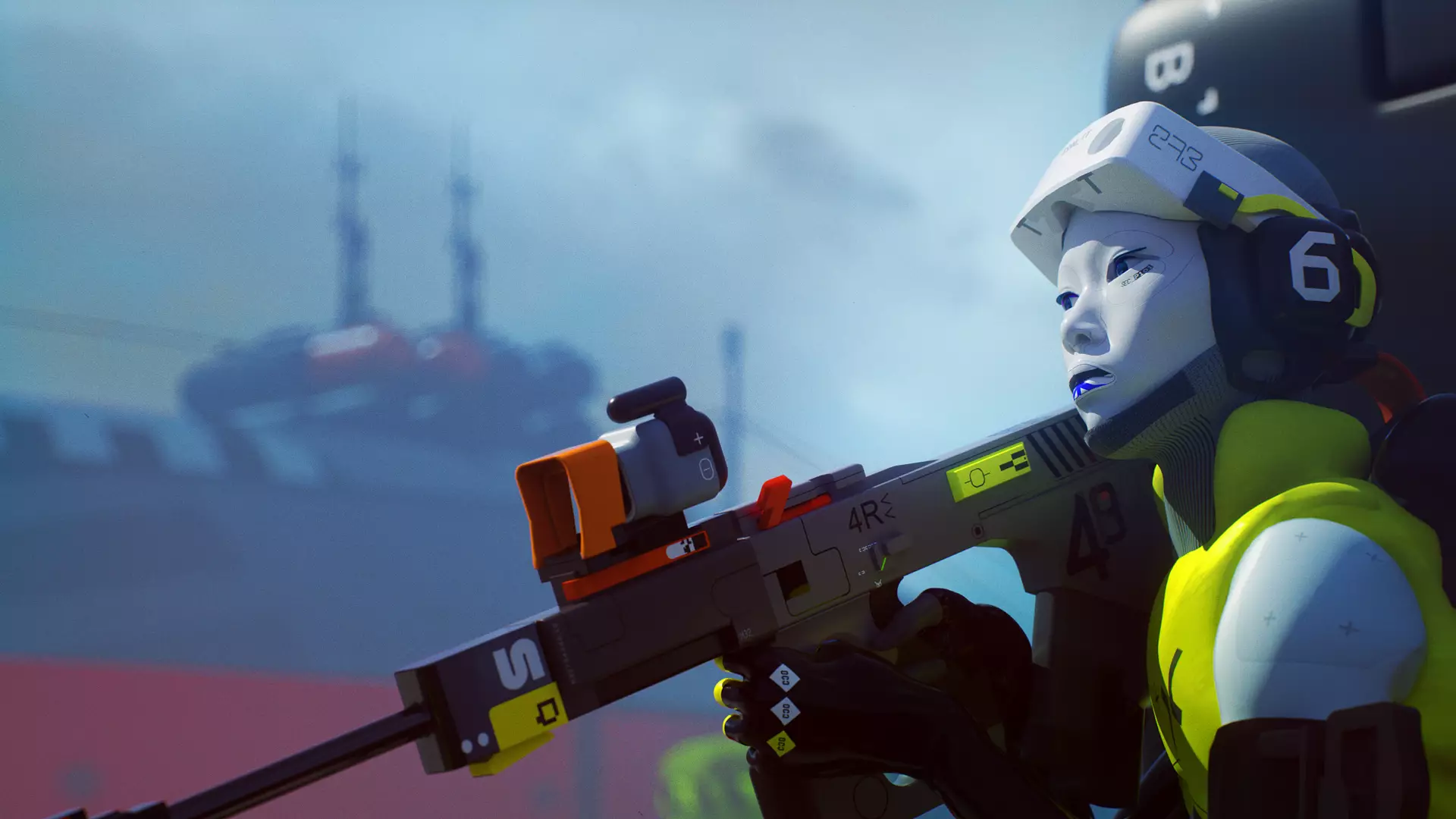Bungie, the studio synonymous with revolutionary advancements in first-person shooter (FPS) gameplay, is set to redefine one of its own legacies. The upcoming release of Marathon not only marks a nostalgic return to the franchise that premiered over thirty years ago but also showcases an evolution in gaming direction. Scheduled for a full launch on September 23 across PC, PS5, and Xbox Series X platforms, with a closed beta preceding it, this reboot captures the essence of classic Bungie while infusing it with modern multiplayer dynamics. This isn’t just a trip down memory lane; it’s a full-speed maneuver into the forefront of contemporary gaming experiences.
From Single Player to Team-based Extraction
Unlike its predecessors, the new Marathon embraces the ever-popular multiplayer extraction shooter genre. Teams of three, referred to as Runners, will embark on perilous missions on the alien terrain of Tau Ceti IV, tasked with gathering valuable loot while avoiding peril. In an era where collaborative gameplay is paramount, this approach encourages camaraderie among players and builds a competitive atmosphere unlike anything seen before in previous iterations. The strategic emphasis on teamwork and the thrill of survival form the backbone of this revamped design, showcasing Bungie’s awareness of evolving player preferences in the gaming industry.
This shift away from single-player narratives not only modernizes Marathon but also reinforces Bungie’s commitment to creating compelling multiplayer experiences. The thrill of escaping with hard-won treasures adds layers of tension and excitement, positioning Marathon alongside other successful titles in the genre. However, the crux of its success will hinge on execution; nuanced gameplay mechanics will be critical in distinguishing it from existing offerings.
Building a Community-Driven Game
Bungie’s transparent approach in developing Marathon is commendable. The studio plans to engage with the community through Q&A sessions and beta testing, emphasizing their dedication to player feedback in shaping the game’s evolution both at launch and thereafter. This not only fosters a sense of belonging within the gaming community but also reflects Bungie’s historical responsiveness to its fanbase—a philosophy that has historically enriched its games.
Moreover, the ability to customize six playable characters adds a personal touch to each player’s experience, enhancing investment in the game. Players will find themselves more deeply integrated in the game’s world and story—a clever move that aligns with established gaming trends where personalization plays a crucial role in sustaining engagement and interest.
A Risky Yet Strategic Pricing Model
A notable decision is Bungie’s choice to sell Marathon as a premium game rather than adopting the increasingly common free-to-play model. While Destiny 2’s free entry point has made it accessible to a vast audience, this approach risks alienating potential players who are wary of upfront costs. Yet, it also signals a return to the traditional gaming model, suggesting that Bungie believes in the quality of their creation to justify a price tag. The balance between profitability and community growth will be closely scrutinized in the lead-up to launch.
The recent trend observed with titles like Helldivers 2 and Concord, which also embraced a paid model, suggests that Bungie is opting for a strategy that could lead to sustained player investment and enjoyment over time. By offering a substantial experience rather than piecemeal products, Bungie may cultivate a more dedicated player base.
Seasonal Content and Future Prospects
Marathon’s seasonal design, where each season lasts roughly three months, reflects an understanding of the current gaming ecosystem that thrives on constant content updates. The promise of resetting player progress and introducing substantial world changes each season aims to keep the community engaged and returning for new challenges.
As players brace themselves for what Marathon will offer, the anticipation surrounding post-launch updates builds a sense of excitement and curiosity. The game promises not only to flourish at launch but to evolve richly over time, holding potential for expansion and continued relevance amid a competitive gaming landscape. With plans for new mechanics, environments, and gameplay that adapt based on player involvement, the future of Marathon appears imbued with possibility.
Through its audacious reboot, Bungie is not just resurrecting a brand; it’s crafting a future where community engagement and revolutionary gameplay harmoniously converge.

